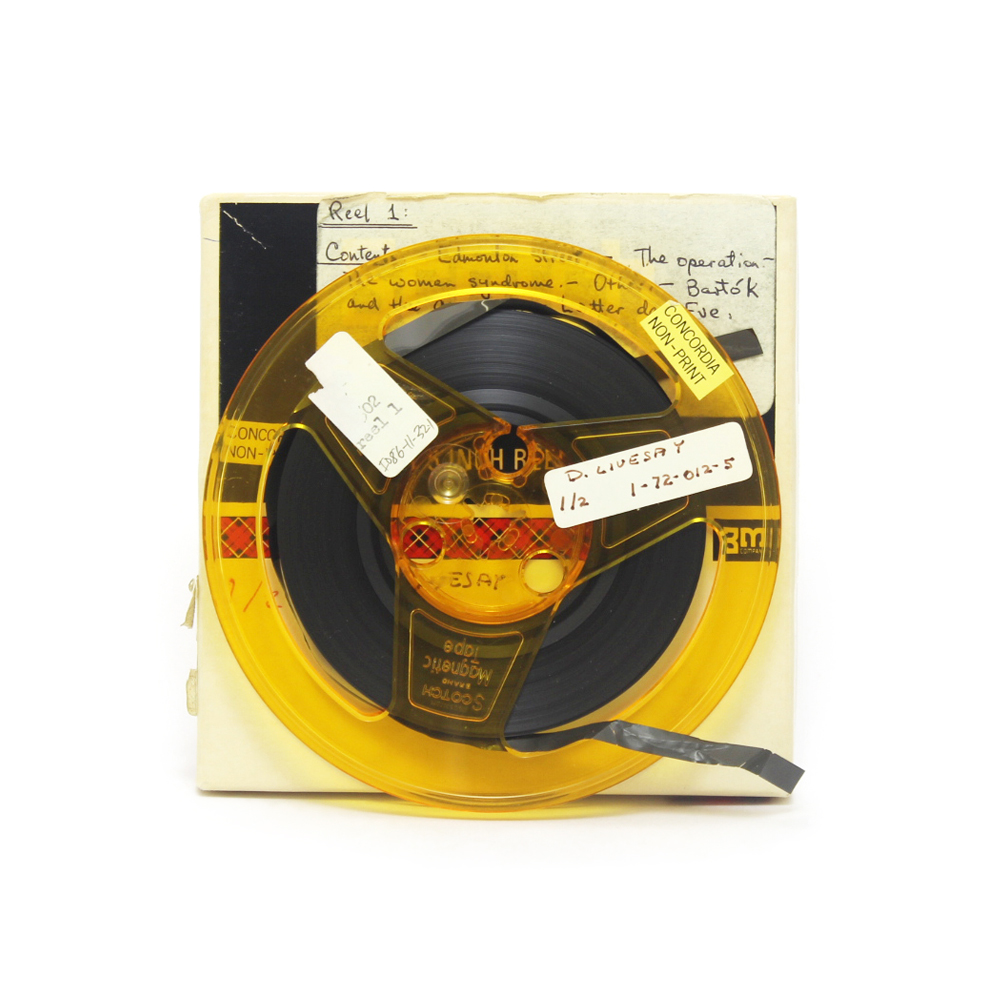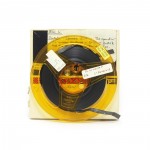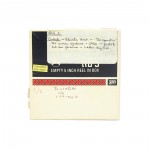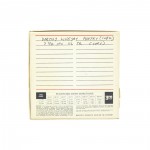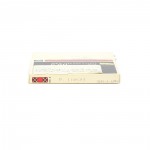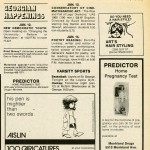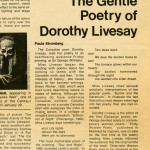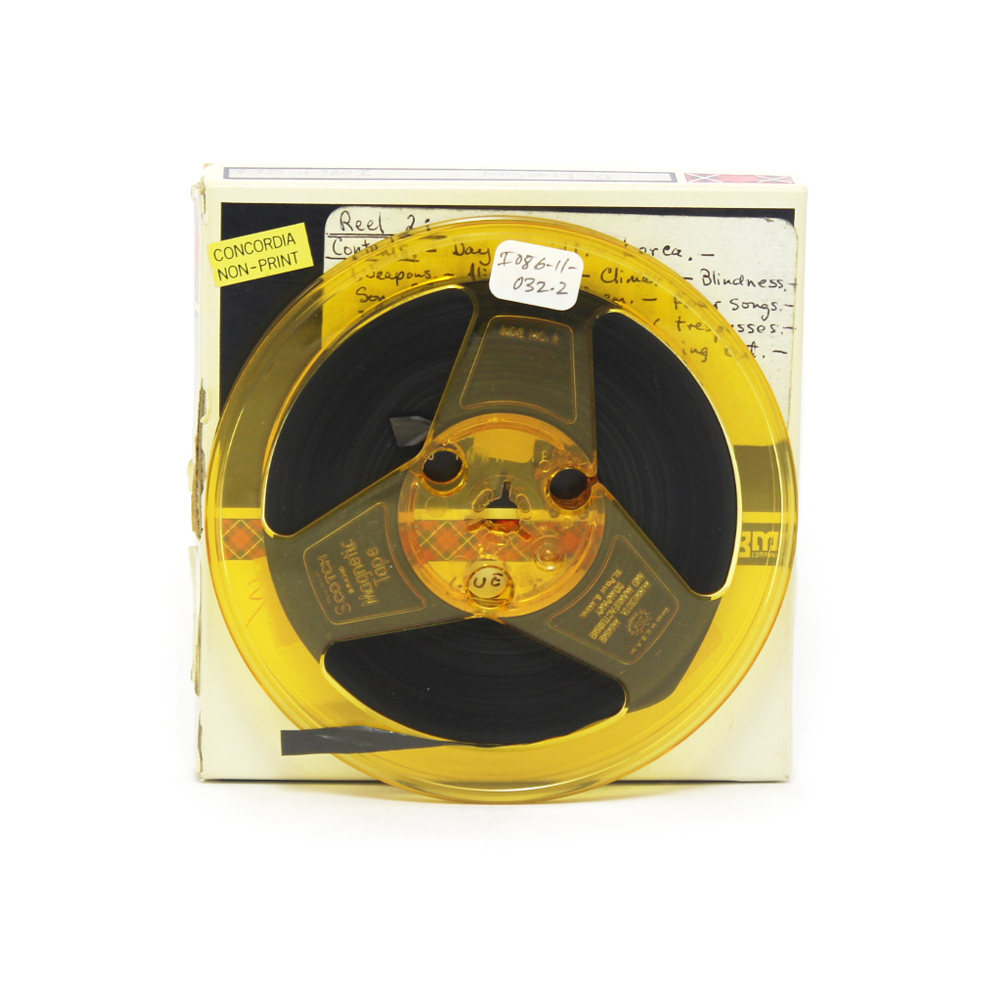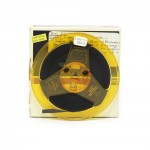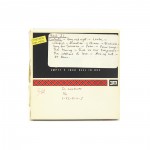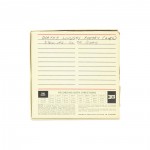Introducer
00:00:02.72
I was going to talk on about Dorothy Livesay's distinguished career, as a poet, and a critic and a teacher, but after what she told me tonight, I'm not sure if distinguished is exactly the right word, she says that at the age of nineteen, she snubbed the Prince of Wales. Nevertheless, two books should be mentioned, her selected and uncollected poems to appear this September and a book which was called 39 Women Poets which has gained another poet and another title at the last moment and as 40 Women Poets of Canada is now on sale outside, as you may have seen as you came in. Back in 1965, I guess it was, Wynne Francis managed to catch Dorothy Livesay as she was passing through Montreal, and Dorothy gave a really private reading in Wynne's office. Ever since then, we have been trying to convince her to come back and read to us all in the series. I'm extremely happy this year that we have been successful and that I can present to you Dorothy Livesay.
Dorothy Livesay
00:01:58.42
I think I might get hung up on this, I had quite a disastrous time getting here. I arrived with a new poem of seven, whose title is "Disasters of the Sun", and my first disaster was on the train, sitting on top of my glasses, which are now somewhat myopic, and second disaster going to Sherbrooke, the bus rolled right into an oil tanker, which somehow or other didn't blow up, but gashed my thumb, and at Bishop's I had only begun to read when a fire alarm started, and rang for ten minutes before they silenced it. So I have a feeling that somehow or other, there are more disasters ahead tonight. However, I'm supposed to read a while and then call an intermission I think. Mostly I like to sort of go back over the years and trace the different things, specially love poems from early times on, but I'm going to skip about a bit. Recently in Edmonton I edited the fourth issue of a quarterly magazine, "White Pelican". Which Sheila Watson edits but she gave this particular issue to me, and I chose the theme of 'North'. Feeling perhaps that we are still trying to find our identity, whether we're English Canadians or French Canadians, and that perhaps the north has some element of it in it which helps us to find that. I discovered though, in collecting material, stories, poems, plays about the north, that it was the Native Indian people who have a different view altogether of the north than we do. At the same time, you find many young Canadian poets identifying with Native culture, and almost feeling that they must become Native, and become Indian to be real to know who they are. I wrote at the beginning of this issue this little note I'll just read. North is from wherever you are looking. It's starting...[laughter.] For those living below the 49th parallel, Canada itself is North. In a sense, we're all here as explorers without a home. Our great guilt at having ousted the Native peoples from their land is now seeking expression in an attempt to re-create the Indian and Eskimo past, and every month brings forth books of poetry, fiction and history which seek to come to terms with pre-history, with myth, or with the way the Inuit live in harmony with nature. In ironic contrast, the Native artists and writers are expressing their concern, not with their past, but with possible ways of accommodation to the present, the white man's world. Thus, the three British Columbia Indian poets here represented, Skyross Bruce, Gordy Williams and Eleanor Crow are bitter, ironic and contemporary. Not for them the nostalgic recreation of the Indian myth, or even not for them the vigorous folk humor of life in the north which you find [inaudible] and in later writers. While I think it's worthwhile thinking about that because you do have a lot of young poets now seeping themselves in Indian or Eskimo culture, and feeling as if they must become that in order to be themselves. None of us can quite escape from this, and I have a poem or two that I'll begin with, which I suppose are my expression of coming to terms with the North, or the somewhat southernly north, Edmonton. I'll begin with a kind of collage poem where I put bits of history, bits of visual imagery and bits of surrealism together, called "Edmonton Sweet".
Annotation
00:06:56.63
Reads "Edmonton Sweet".
Dorothy Livesay
00:10:19.31
Quite a different poem about going North is called "The Operation", and that is the poem which is in this Anthology, just out today, 40 Women Poets. I didn't intend to put myself in, but the other editors suggested it was the only 'done' thing to put one or two poems of my own in it. So here's the one called "The Operation". It's a kind of three-way poem where the woman is addressing the doctor and her lover, alternately, and then perhaps herself.
Annotation
00:11:10.05
Reads "The Operation".
Dorothy Livesay
00:15:36.20
Since this anthology will probably be called a women's lib., even though it isn't, because none of the poets in it are consciously trying to be anything but their individual selves, nonetheless, I think there are poems by every woman which do express that individual point of view, that differentness, I have never been able, though perhaps I was a women's lib creature in the thirties, I have never been able to feel that men and women are the same, and so I have poems, right through the years which illustrate that point of view. Here's a very recent one called "The Woman Syndrome".
Annotation
00:16:26.66
Reads "The Woman Syndrome".
Dorothy Livesay
00:17:05.06
And a much earlier poem, written when I had a family and young children and I suppose frustrated and not getting out into the world. It's called "Other", it's in The Selected Poems of 1957.
Annotation
00:17:34.68
Reads "Other".
Dorothy Livesay
00:19:11.14
And in a different vein altogether, the poem I suppose that's been the most anthologized of any of mine, which to me is a rather traditional way I suppose of seeing the male and female element. It's called "Bartok and the Geranium". The poem simply began because I was teaching an evening class of housewives the art of creative writing, and I gave them an assignment to write an imagistic or perhaps haiku-type poem, when they got home, to look at two objects, utterly different and disparate, and just see they could link these objects in a tension which would create a poem. Well the next day, I had sent the children to school after lunch and was sitting in the dining room listening to a CBC concert, and heard music that I hadn't heard before at all, a violin concerto it seemed to be, and in the window as I was listening was this red geranium. So I thought to myself, well I've given my class an assignment, I wonder if I could do the same thing. And at the end of the concert they announced that it was Bella Bartok, violin concerto. So suddenly, the two elements, the music and the geranium, did seem to link in my mind and immediately I wrote the poem which I think I've never revised. I'll tell you afterwards about what some of the professors have said about the meaning of the poem.
Annotation
00:21:00.65
Reads "Bartok and Geranium".
Dorothy Livesay
00:22:10.95
Well, a few years later, Dr. Roy Daniels was giving a course in Canadian Literature, which I was a member, and one day he asked me if I would not come to class, so I divined he was going to deal with my poems, and I asked a fellow student to please take notes. So this was one of the poems he dealt with, and he informed the class that this poem represented the conflict between nature and art. While at first I was a bit dumbfounded, you know now about how the whole thing began and then what I felt about the he and she of it. But perhaps upon meditation, that this could be another meeting in the poem which I as poet, wasn't aware of but which was still perhaps there. But still another example of the different interpretations which people take to themselves and perhaps get great pleasure from, was, happened in U.N.B. when Fred Cogswell put this poem on a sight examination for a first year Canadian lit class, and one of the students who I'm afraid failed his year, wrote on the paper, and on seeing this poem decided that it was written by a man, and he said it was about this guy Bartok who walked along the street and saw a whore leaning out of the window. Well on the same, and finally, this last one on the same kind of he and she of it, a poem written about a year ago, right out of a dream, I mean I dreamed this poem. It's called "Latter Day Eve".
Annotation
00:24:18.95
Reads "Latter Day Eve".
Dorothy Livesay
00:25:34.96
Well I'd like to jump back a bit, quite a long way now, not to lyrical poems, which were the ones I really started out doing, but two poems from the thirties...
Annotation
00:25:51:00
END OF RECORDING
Link to Part 2 of recording.
Dorothy Livesay
00:00:00
Polish immigrant who came back to the same house to pick up his belongings, and not knowing what was happening, entered the house, and police shot him in the back and killed him. This happened in Montreal in 1934 or 5. So out of all those experiences, through the thirties, and out of another year I had in New Jersey, living amongst the Negro, very, very discriminated against people in Englewood, New Jersey. I, my whole poetry changed from being lyrical and personal to being social and yet I always, never felt it was something outside myself because I felt very powerfully the identification to what was happening to people. I returned from New Jersey about '36 and I wrote this poem which E.J. Pratt published in the first issue of the Canadian Poetry Magazine in 36. I guess I wrote it in about 1935. In it, there are various themes, the whole poem seemed to start from Cole Porter's lines, the song we were all singing then, "Night and Day". Night and day, you are the one...[sings.] And then also there's a theme from Lennon, who said "In order to make two steps forward you may have to go one step back". And this poem reverses that idea, in looking at industrial capitalist society. The other theme is that of the Negro and that of his exploitation and also of his release in song, and in Negro spiritual, because I did know them very well that year.
Annotation
00:02:16.74
Reads "Day and Night".
Dorothy Livesay
00:07:57.12
I might read one more poem from that period, "Lorca", and then perhaps you'd like a break. This is a little later, of course, this is about 1937-8, when the Spanish Civil War was raging and haunted us very much in this country, many friends we knew joined the MacKenzie-Papineau Batallion, and went a fought for Spain. At that time, we believed that the Spanish Court, Garcia Lorca, had been killed by Franco's men. I believe that, well in fact, Jack Spicer taught me that there's another version of his killing, that of a love triangle, but it didn't matter, the point was that many poets were fighting for Spain, and many were killed. So I'll just read "Lorca" if I can find it. Yes.
Annotation
00:09:15.64
Reads "Lorca".
Annotation
00:11:29.53
I'll pause now for a break. [CUT] And thought I don't want to appear to suit every taste, quite a lot of my poetry has been personal love poetry, beginning with the earliest days, my teenage, and I thought I would read a few very early love poems and then you could, you might be interested to compare them with those written within the last five or six years. These were from a book published in 1932, "Sign Post". And you'll notice that they're pretty well structured, and in a sense quite conventional, but perhaps they have a kind of feeling in them. "Weapons".
Annotation
00:12:25.73
Reads "Weapons".
Annotation
00:12:54.27
Reads "An Alienation".
Annotation
00:13:26.80
Reads "Climax".
Annotation
00:13:47.04
Reads "Blindness".
Dorothy Livesay
00:14:11.45
And a very short lyric, "Song for Solomon".
Annotation
00:14:17.26
Reads "Song for Solomon".
Dorothy Livesay
00:14:36.56
And now, a recent poems from the 1967 book, The Unquiet Bed. I'll read a little ballad that is the title poem, which one of my students set to music at one point. "The Unquiet Bed".
Annotation
00:14:56.05
Reads "The Unquiet Bed".
Dorothy Livesay
00:15:25.16
And "Four Songs".
Annotation
00:15:32.33
Reads "Four Songs".
Dorothy Livesay
00:16:41.42
And a poem which certainly wouldn't be acceptable to women's lib, yet it's an experience probably all women have had. It's called "The Taming".
Annotation
00:16:52.55
Reads "The Taming".
Dorothy Livesay
00:17:34.09
And "The Touching".
Annotation
00:17:39.15
Reads "The Touching".
Dorothy Livesay
00:18:49.98
And a little poem called "Give Us Our Trespasses", which was an attempt to do what Jack Spicer had advised us at some of his sessions, to completely wipe out all sensation, all the senses and see what happened when the words came out of this void, out of this [inaudible] and I did one poem about dreams dedicated to him, and then a little later, this other one came. One would listen in the dark for the words, but not expecting or unexpecting, you understand, but they would certainly arrive and I would turn on the light and write them down. And then turn off the light, turn to sleep again, but again, more words came, and so this series has about seven of these little interludes in it.
Annotation
00:19:52.77
Reads "Give Us Our Trespasses".
Dorothy Livesay
00:21:08.00
And two more from that book, one has five sections- six sections in it, it's called "The Notations of Love".
Annotation
00:21:22.07
Reads "The Notations of Love".
Dorothy Livesay
00:23:27.84
And a last one from there, "Moving Out"
Annotation
00:23:33.64
Reads "Moving Out".
Dorothy Livesay
00:24:07.09
Well, I have a few more recent poems, dealing a little differently perhaps with love. This is in the little book Plainsongs, which is still in print. "At Dawn".
Annotation
00:24:30.08
Reads "At Dawn".
Dorothy Livesay
00:24:58.24
And "Dream".
Annotation
00:25:03.69
Reads "Dream".
Dorothy Livesay
00:25:30.21
And this one "The Uninvited", the river in this is the St-John in New Brunswick and it's a theme that reoccurs a lot, whether one is a man or a woman, the feeling that even though one is walking with one's loved one, there is another lover who one also remembers, or who perhaps is coming, one fears.
Annotation
00:26:09.08
Reads "The Uninvited".
Dorothy Livesay
00:27:08.85
And perhaps just this last one, "Another Journey".
Annotation
00:27:17.32
Reads "Another Journey".
Dorothy Livesay
00:28:08.41
I'd like to read a poem about the West Coast, it was written summer before last, in Victoria, where one was, I suppose feeling one's age, and yet observing the eternal pattern of the young. And perhaps relating it to our own history in this country. It's a more I suppose didactic poem. "The Artifacts, West Coast".
Annotation
00:28:51.42
Reads "The Artifacts, West Coast". [perhaps not finished, CUT]
Annotation
00:32:14.94
END OF RECORDING
